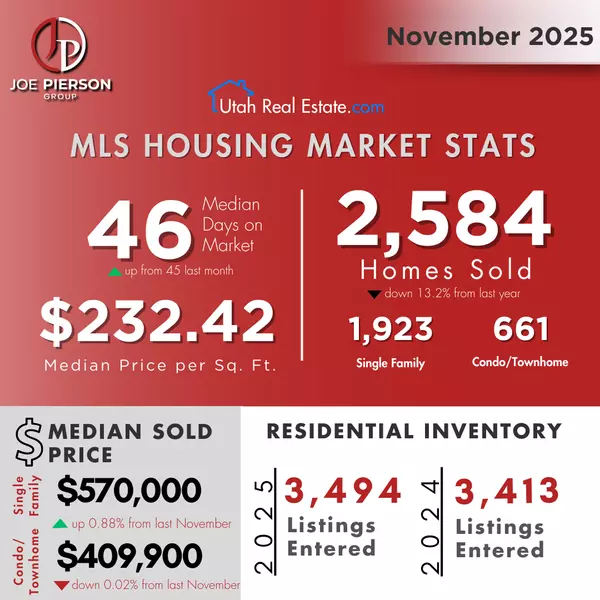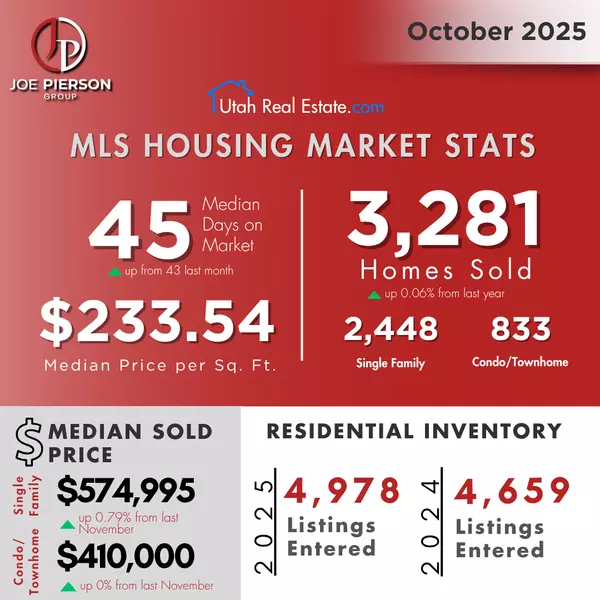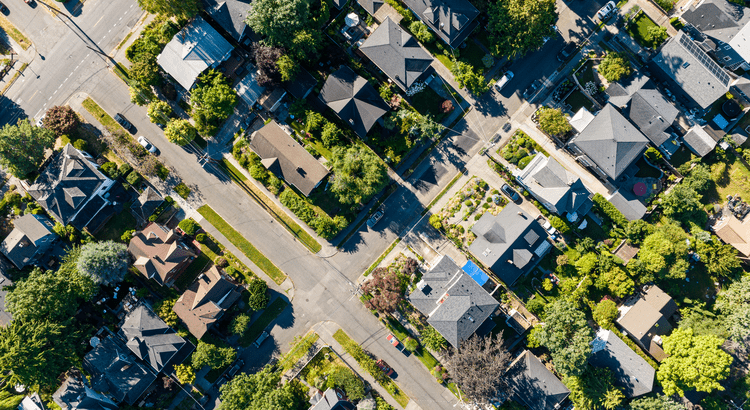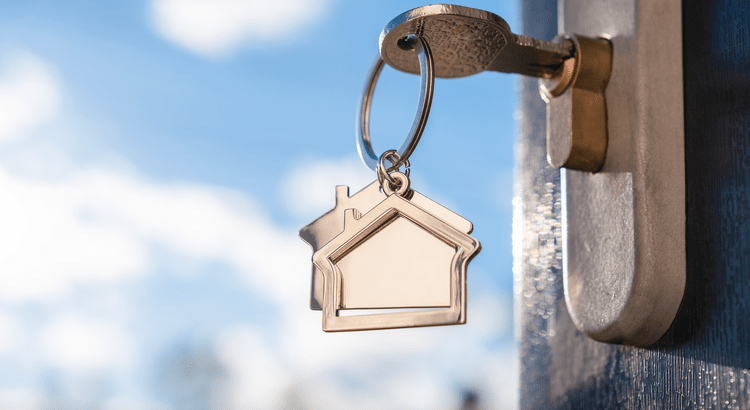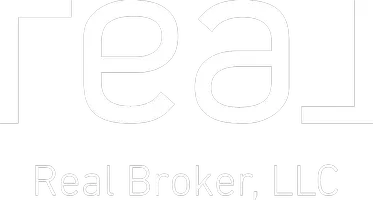What an Economic Slowdown Could Mean for the Housing Market

What an Economic Slowdown Could Mean for the Housing Market

Talk about the economy is all over the news, and the odds of a recession are rising this year. That’s leaving a lot of people wondering what it means for the value of their home – and their buying power.
Let’s take a look at some historical data to show what’s happened in the housing market during each recession, going all the way back to the 1980s. The facts may surprise you.
A Recession Doesn’t Mean Home Prices Will Fall
Many people think that if a recession hits, home prices will fall like they did in 2008. But that was an exception, not the rule. It was the only time the market saw such a steep drop in prices. And it hasn’t happened since, mainly because inventory is still so low overall. Even in markets where the number of homes for sale has started to rise this year, inventory is still far below the oversupply of homes that led up to the housing crash.
In fact, according to data from Cotality (formerly CoreLogic), in four of the last six recessions, home prices actually went up (see graph below)
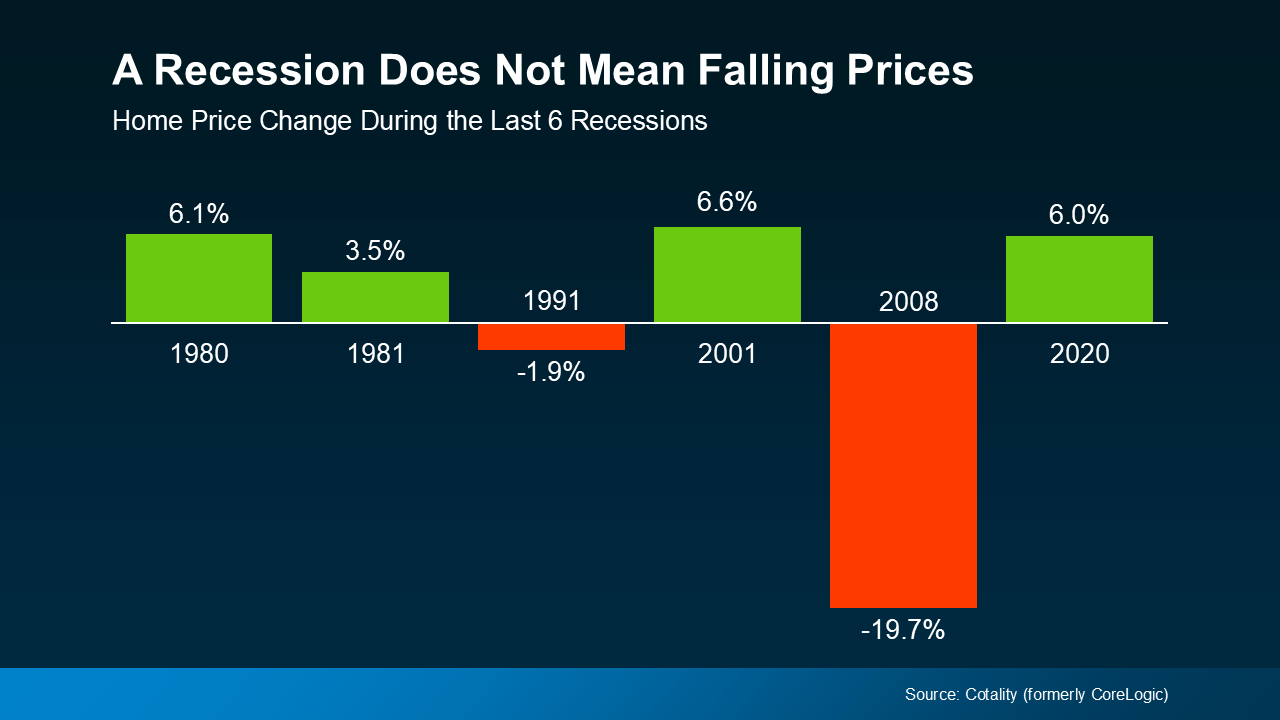 So, don’t assume a recession will lead to a significant drop in home values. The data simply doesn’t support that idea. Instead, home prices usually follow whatever trajectory they’re already on. And right now, nationally, home prices are still rising, just at a more normal pace.
So, don’t assume a recession will lead to a significant drop in home values. The data simply doesn’t support that idea. Instead, home prices usually follow whatever trajectory they’re already on. And right now, nationally, home prices are still rising, just at a more normal pace.
Mortgage Rates Typically Decline During Recessions
While home prices tend to stay on their current path, mortgage rates usually drop during economic slowdowns. Again, looking at data from the last six recessions, mortgage rates fell each time (see graph below):
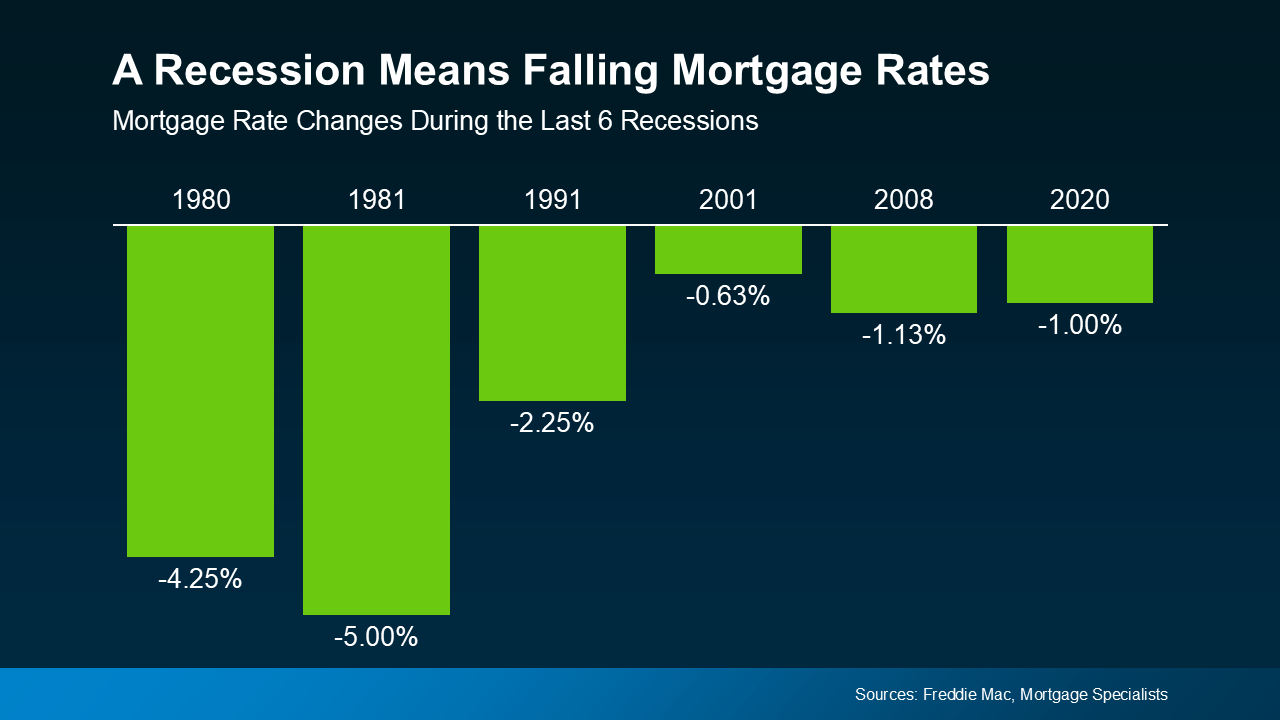 So, a recession means rates could decline. And while that would help with your buying power, don’t expect the return of a 3% rate.
So, a recession means rates could decline. And while that would help with your buying power, don’t expect the return of a 3% rate.
Bottom Line
The answer to the recession question is still unknown, but the odds have gone up. However, that doesn’t mean you have to worry about what it means for the housing market – or the value of your home. Historical data tells us what usually happens.
Discover how an economic slowdown could impact the housing market, including trends in home prices, demand, and mortgage rates. Stay informed with expert insights.
economic slowdown, housing market, real estate trends, home prices, mortgage rates, housing demand, market analysis, economic impact on housing, real estate forecast, homebuyer trends
Learn more:
An economic slowdown often leads to significant changes in the housing market. Home prices may stabilize or decline as consumer demand weakens amid job uncertainties. Consequently, mortgage rates can fluctuate, influenced by adjustments in monetary policy. For investors and developers, this can create new opportunities, such as identifying emerging markets or revisiting strategies around rental property investments. Meanwhile, first-time homebuyers may benefit from lower competition and more favorable loan terms. However, experts suggest closely monitoring the Federal Reserve's policies and global economic shifts, as they can significantly reshape the real estate landscape. Staying informed by consulting trusted real estate resources is key to navigating uncertain times in the housing sector.
If you’re wondering how the current economy is impacting our local market, let’s connect.
Categories
Recent Posts
